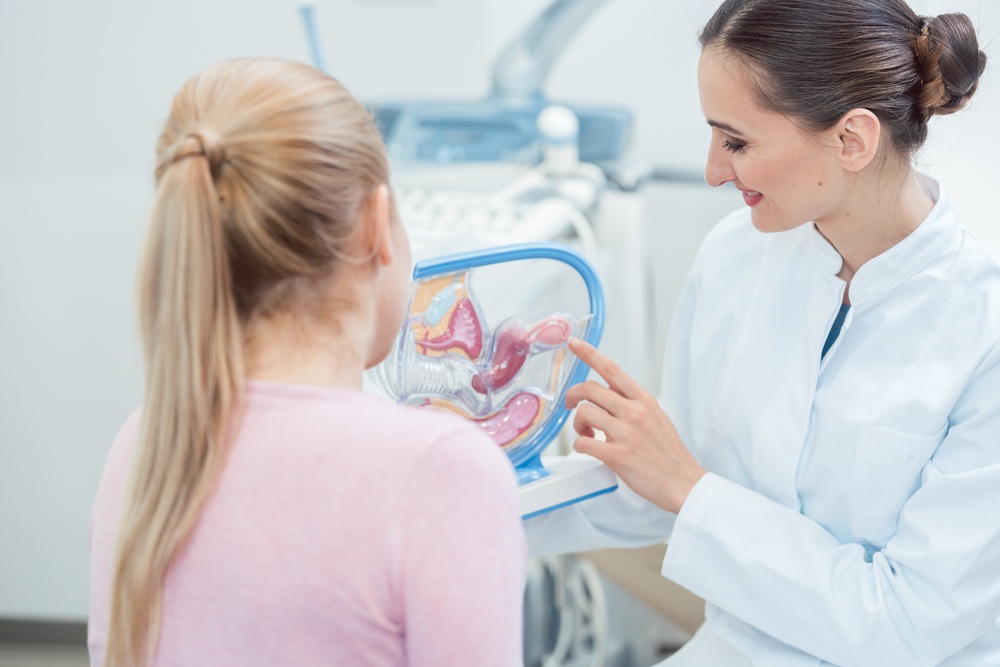

PCOS stands for Polycystic Ovarian Syndrome, a condition which affects more than ten million women around the world. PCOS causes a wide range of symptoms which can be very disruptive to a woman’s life, and which can interfere with her fertility. There is no cure for PCOS, but there are many treatments available which can be very effective: thanks to advances in fertility medicine and technology, most patients with PCOS who want to get pregnant eventually do.
What is PCOS and how does it impact fertility?
Polycystic Ovarian Syndrome is the most common hormone disorder in women of reproductive age, and contributes up to ⅓ of all infertility cases. Primarily, PCOS affects the way the ovaries function, which is how it causes infertility. PCOS is actually behind most cases of irregular ovulation: it contributes to 30-40% of all cases of amenorrhea (the absence of periods for at least six months or three consecutive cycles), and a shocking 90% of all cases of oligomenorrhea (irregular periods more than 35 days apart). When there is a delay in menstruation like this, the uterine lining can grow very thick, causing extremely heavy and painful periods.
Exactly what causes PCOS is still a mystery, but the condition causes a series of hormonal imbalances in the body, including a decrease in estrogen and progesterone, and an increase in the levels of androgens (male hormones) such as testosterone. These imbalances can cause a number of symptoms, including mood disorders such as depression, a tendency to carry excess weight, abnormal hair growth patterns, and acne. Up to 70% of women with PCOS also have insulin resistance, which means that their bodies can’t use insulin properly to metabolize sugar. In response, their pancreas produces more insulin to meet the demand. These higher levels of insulin may be what triggers the release of excess androgens.
Due to all of these factors, many PCOS patients have disrupted production of two important hormones which contribute to ovulation:
- follicle-stimulating hormone (FSH)
- luteinizing hormone (LH)
When these hormones are not working properly, the ovaries struggle with egg production. In normal ovulation, several follicles (small sac-like structures which contain immature eggs) begin to grow and develop eggs. Eventually, one mature egg is released into the fallopian tubes. In PCOS, this cycle is disrupted. The follicles swell, causing cysts, but the eggs to not mature and so ovulation doesn’t occur. When a woman isn’t ovulating, she can’t get pregnant naturally.
{{cta(‘89361e69-2bb1-4faf-bfd6-71383dcfdc95′,’justifyleft’)}}
Why choose SCRC for help conceiving with PCOS?
Getting pregnant when you’re dealing with PCOS can be extremely challenging, and many patients have years of suffering and disappointment behind them before they even reach out for help. The good news is that PCOS is a highly treatable condition once you have a team on your side who truly understands the complexities of this disorder. Finding the right clinic and the right doctor is probably the most important decision you can make on this journey. We are proud to say that SCRC has an incredible track record of success when it comes to treating patients with PCOS. Here’s why:
- Our individualized approach
There are no “paint by numbers” answers in the world of fertility medicine. Every single patient is unique, and every single case of PCOS requires a carefully tailored approach. No one deserves to be treated like a statistic. Everything begins when you arrive at SCRC, with a painstaking diagnostic process. From the results of your medical history and our sophisticated testing, your team can create highly detailed picture of your individual situation and a clear diagnosis. From there, we can begin to help you chart a path for treatment which is fully personalized to you, your body’s needs, and your fertility goals.
- Our expert doctors
The reproductive endocrinologists of SCRC are practicing at the very top of their field. They spend every day in the trenches with our patients, working to find answers to often complex fertility issues and calling on their years of practical experience to uncover the right solutions. They are also thought leaders who stay deeply involved in the latest research and developments, lecturing around the world, publishing in peer-reviewed journals, and conducting clinical studies. Several of our doctors have made PCOS a specialty and have published original research on the subject: one has even earned the unofficial title of “The PCOS Queen” from her colleagues in the world of reproductive endocrinology, for her encyclopedic knowledge and in-depth experience of the condition.
- Our state-of-the-art lab
The quality of a fertility laboratory can have an immense impact on fertility treatment success rates. The equipment and supplies, the training of embryologists and technicians, and even the air quality in the lab can affect the outcome. At SCRC, we have a world-class in-house Advanced Reproductive Technologies lab. The SCRC ART lab is overseen by a highly trained and experienced team of experts. It provides access to the highest levels of technology and equipment and operates according to the very latest best practices in reproductive laboratory science.
What fertility treatments does SCRC offer for PCOS?
It’s important to note that whether or not you’re planning to get pregnant any time soon, if you suspect that you may have PCOS you should talk to a fertility specialist and make sure you are properly diagnosed. PCOS can have serious health implications and should be monitored and treated even if you’re not anticipating a pregnancy. The treatments used to control PCOS and manage day to day symptoms are sometimes different from the treatments used to help PCOS patients get pregnant. For example combination birth control pills can often be help regulate hormone levels, but aren’t much help for someone who is trying to conceive. It’s vital to have a frank conversation with an expert about your symptoms and your goals so that they can help you build a treatment place which makes sense for you and where you are in your life.
If you do want to get pregnant, SCRC can help. After you’ve had your consultation with one of our fertility experts, we’ll help you determine where to start with fertility treatments. Some of the options we offer include:
- Medication
For some patients, oral or injectable medication may be enough to kick start ovulation, and with the help of timed intercourse it may be possible to conceive without further intervention. The most common medications include clomiphene citrate (also known as Clomid) and gonadotropins such as synthetic follicle-stimulating hormone (FSH). Sometimes these medications are used in combination with Metformin for insulin resistance. Metformin helps to re-sensitize the body’s cells to insulin, so that the body does not need to produce so much insulin. This insulin reduction can slow the production of androgens in the ovaries, making it possible for ovulation to begin again.
While medication can be an effective an invasive treatment option, it is not without risks PCOS patients taking fertility medication (alone or in conjunction with another fertility treatment) should be monitored carefully. Women with PCOS can have strong responses to ovarian stimulation which puts them at risk of complications such as Ovarian Hyperstimulation Syndrome (OHSS) or multiple pregnancies. Careful monitoring at every stage of treatment is essential.
- Intrauterine Insemination (IUI) with medication
Patients with PCOS are usually very good candidates for intrauterine insemination and tend to have high success rates with this treatment. In this type of IUI, we use the same fertility medications mentioned above to induce ovulation. Then, using a sperm sample previously provided by your partner or a donor, concentrated sperm is introduced into the uterus using a thin, soft catheter in a quick and painless outpatient procedure. This greatly improves the chances of fertilization and implantation by making it much easier for the sperm and egg to meet. It also means that any resulting embryo is already ideally placed to grow.
As with medication alone, the risk of conceiving a multiple pregnancy using IUI and fertility medication is higher for women with PCOS and close monitoring is important.
- In Vitro Fertilization (IVF)
In Vitro Fertilization is not a single procedure: it’s actually a process. Just like the earlier treatments, fertility medication is used to stimulate the ovaries. In IVF, the doses of medication are calibrated to help the ovaries mature multiple eggs. Once the eggs are sufficiently developed, they are retrieved in an outpatient procedure performed under light sedation. Then the eggs are mixed with sperm from the woman’s partner or a donor. The resulting embryos are carefully cultured in the lab for between 3 to 5 eggs. The healthiest and highest quality embryo is then selected and transferred directly into the woman’s uterus. If all goes well, it will hopefully implant and grow into a healthy baby.
IVF can be an excellent option for women with PCOS. Because of the high risk of potentially dangerous multiple pregnancies in young women with PCOS who are sensitive to fertility medication, IVF offers a very high success rate while also allowing control over how many embryos are transferred at once. Any remaining embryos can be frozen for potential later use, which gives you the potential to grow your family in the future.
- Support for lifestyle changes and supplemental therapies
Aside from medical treatments, SCRC can guide you towards lifestyle changes which can support your efforts to conceive. PCOS is highly associated with weight gain and obesity. It’s a sensitive issue, but a crucial one. Anything a PCOS patient can do to improve their overall health is likely to pay dividends in terms of fertility. Working with your doctor and other supportive professionals to come up with a diet and exercise plan is excellent preparation for fertility treatment: patients who can maintain a BMI below 30 and ideally between 25 and 20 are likely to have an easier time getting pregnant and a healthier pregnancy when they do conceive. Complementary therapies such as acupuncture are also a great option for patients undergoing treatment for PCOS: it can help with stress and may even support hormone regulation.
All of us at SCRC know that you deserve the best support and treatment available for PCOS. If you’re worried that you might have trouble getting pregnant because of PCOS, don’t suffer alone and don’t wait to reach out. You don’t even need a confirmed diagnosis before you come to see us, as this happy former patient learned:
“Our initial consultation was very informative and Dr. Surrey took us through all the steps he wanted to take before IVF even though we ready to jump to this expensive procedure. He was thorough and ordered the right blood tests and ultrasounds and determined I had PCOS. This was not found by any of the Dr.’s in Texas. He prescribed glucose control medications and at my request prescribed medication to help me ovulate. After taking the medication I was pregnant within a month.”
Coping with PCOS can be a lonely road sometimes, but you’re not alone. Thanks in part to efforts like PCOS Awareness Month, recognition of this condition is growing, and help is out there. If you’d like to learn more about what the experts at SCRC could do for you, get in touch. We’d love to welcome you to one of our offices for a consultation. Let’s start finding you some answers.
{{cta(‘a2654f54-1eb4-4bad-9fd5-f1b7433a59cc’,’justifycenter’)}}




